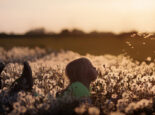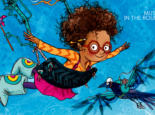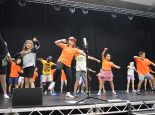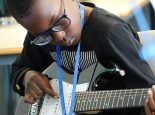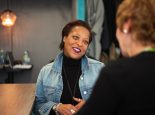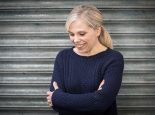Studying in the time of coronavirus
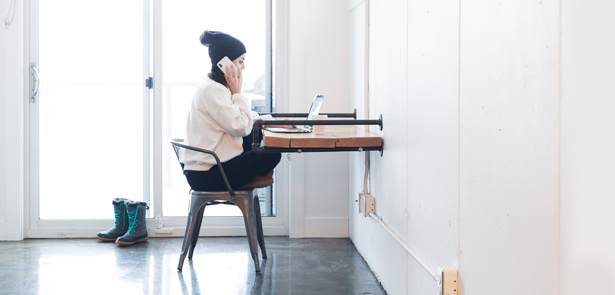
In March, the government announced the closure of the majority of the UK’s shops, services and many public spaces in response to the COVID-19 pandemic. As all parents will be keenly aware, this included schools – but less evident in the headlines was the sudden end to face-to-face teaching in universities. As with schools, teaching could not be allowed to simply stop, however. So what do universities do? We talked to two students at University Centre Peterborough (UCP) – both in the final year of their degrees – about how they have coped with the changes and how UCP has kept their studies on track
There is no good time for degree studies to be disrupted. If there were a worst moment for it to happen, however, it would certainly be in the closing stages of the crucial final year. Necessary as the lockdown clearly is, it hit thousands of final-year students at precisely this point, just as they were due to complete their dissertations – traditionally completed over the Easter holidays – and with final coursework or exams looming soon after.
For UCP students Clare Watchorn and Lewis Beaver, both in their third and final year, the fallout from this could have been disastrous. Fortunately, like most UK universities, UCP saw the way the wind was blowing and didn’t wait for word from government to start making plans. ‘We knew this lockdown was coming a couple of weeks before it happened, from watching what other countries were doing,’ says Sociology student Clare. ‘During lectures in the last couple of weeks – before the government took the decision to close schools and universities – my lecturer was also telling us that they expected lockdown measures would be applied in this country, and her team were already working together to work out how to move learning online. So we knew from the start it was all in hand, they were on it.’
Keeping up support
That reassurance proved critical at what is already known to be the most stressful time for students. ‘We knew that we were going to be supported and that our academic journey wouldn’t be affected, it wouldn’t affect our learning.’ There’s more to this than just reassurance, however. There is the whole practical challenge of effectively replicating lectures, seminars and tutorial meetings online – potentially a massive task. Clare explains how they did it – and how having that head start helped: ‘They recorded the lectures we were due to have in those last few weeks, and were ready to upload them – the entire presentation was recorded, it wasn’t just the slides. We also have a system called CANVAS we can log into, so as well as the main lecture there were seminar tasks afterwards, with videos, links so we could read an article, and students could then upload their comments onto a discussion page. All these activities were already set up online for us to do.’
For Clare, the transition proved relatively seamless – and even, perhaps, brought some advantages. ‘I really like the platform, CANVAS, that we use. You can see whether other students are uploading stuff, so there is that element of peer pressure! It encourages you to read up and do more from home, to formulate some views, then put your comments on the discussion pages knowing that the other students are going to see what you’ve written as well.’
Staying on track
Aware of the work involved in making this happen and keeping student studies on track, Clare felt moved to write to the university to thank everyone for their efforts. ‘We just got so much information about how our learning would continue, we each got an email from our lecturers saying that if we didn’t have a laptop or access to technology to let them know straight away, so lecturers were organising laptops and computers for those who didn’t have them, getting up-to-date phone numbers so they could be in contact with students if necessary, my lecturers – Clare and Paul – were letting us know as soon as anything happened or a decision was made, keeping us updated. The support was great, and the communication was brilliant. If any of us had questions on the students’ Facebook group, the lecturers would reply straight away – and even if they didn’t know the answer they would reply to say, for example, “There’s a meeting tomorrow so we’ll know by the end of the day.”’ Submission of work was also shifted online, via central email address, and submission dates were extended by ten days to allow for any possible disruption during the transitional period.
Clare is a mature student with children at home, and studying close to where she lives. For Lewis, the issues were somewhat different. He came from Liverpool to study at UCP, and when the lockdown hit faced the difficult decision of whether to stay living on campus, or head home. He suffers from Crohn’s Disease and so is in a high risk group. ‘There was an option to go,’ he says, ‘but by then it seemed risky to travel that far. It seemed just safer to stay here.’ He’s now living in halls in isolation, and although he admits it feels ‘a little weird’ he’s doing well. ‘I’m completely shut off, just staying where I am. There’s only about ten other people here, but everyone is following all the guidelines properly, and it is actually quite safe being here – probably safer than if I actually went home. My family were initially very concerned, obviously, that I didn’t come back, but they’ve seen what the uni are doing and the way they’re going about it, and in a way I think they’re quite glad that I stayed here – which I’m sure I ought to be offended by!’
Home and away
Even though we hear in the news that everything is ‘shut down’, in reality many institutions are not completely closed – and, in fact, can’t be. People like Lewis – some of them much further from home – live on the premises and rely on them, so shutting down altogether is not an option. And the presence of others on campus has helped. ‘We’re all in the same boat – there are students here whose homes are elsewhere in Europe, they’re even more isolated than the rest of us, so there is a sense of unity, everyone is looking out for each other. We’ve got a couple of NHS-working students here, and they are the people who are going out, working at the hospital, so they are also being the people that go out and get stuff if we need it. I know it’s a cliché that people band together in times of hardship, but it’s literally what is happening right in front of us. It’s nice to see.’
Clearly for Lewis, there are many challenges beyond just study, but UCP is supporting him with the practical, day-to-day issues too. ‘We get a call every week, normally on a Monday, to check-in to see that everyone is healthy and safe. They’ve been doing food run, which is obviously really helpful for me, not being able to go anywhere. So, they ring each week and we just reply with anything we’d like, and when it comes through there’s so much more than you actually asked for! Me and my flatmate asked for a bag of pasta, and we got given five. They bring them to the gate and then we go one by one for our basket of food. UCP is funding that, too, and having that direct line with a support network is really helpful.’
Keeping up
On the learning side, Lewis has been participating in weekly class video chats, arranged by the tutor to make sure everyone is up to speed on everything, and as with Clare there have been a number of accommodations with the assessments to ensure we can be completed without the students being at a disadvantage – including extensions on the submission of assessed work.
One of the other big challenges in Lewis’s case is his area of study. For students like Clare, taking an academic subject based mostly on written work, it is at least straightforward to shift things online. Lewis, however, is a performing arts student, who as part of his finals was due to participate in a performance of a play, written by the group, at the Key Theatre. With all theatres closed and gatherings impossible, how is UCP covering that? ‘That’s all been taken care of by either switching it to a theoretical approach, or filming it from wherever we are. That’s massively helped. The performance at the Key Theatre has now been changed to a 15-minute showcase or showreel. That can include anything we want; script-work, performing, song and dance, anything we’ve studied. There are no parameters. A couple of students on the course are revisiting stuff we wrote for this play, and filming that or using rehearsal footage. I’m going down a new route, writing new scripts – partly based in this whole isolation period.’
The isolation experience has also had an unexpected creative impact on Lewis’s dissertation – An investigation into the effectiveness of political theatre in a post-Brechtian Britain. ‘I wrote my introduction about two months ago, then revisited it just the other day and thought: “I could rewrite this whole thing!” We’re seeing so many entertainers and performers filling the void in people’s lives, it’s been pretty inspirational. So yes, I’ve rewritten it, to capture how important the arts are in terms of what’s going on.’
A sense of community
Although their circumstances are very different, something both students mention is the advantage of attending a smaller university, with a closer knit community. ‘I prefer UCP as one of the smaller universities,’ says Clare. ‘You get to know the other students more and the lecturers more, so they understand you and how you learn and how you work. Usually with my essays, it takes me a few attempts – I can do a first draft then meet with the lecturers and say, “This is what I want to do”, so I feel they understand how I work.’
This is a factor that has proved of particular significance in recent months. ‘We were close anyway,’ says Lewis, ‘and saw each other three or four times a day around campus, but now there is a strong sense of community. We’re all stuck here together so it’s become like our own isolation family, and we’re bonding through that; when this is all over, hopefully that will continue.’
Clare has missed the social side of university life, but there have been ways of dealing with that. ‘You do miss that contact with others, at the coffee shop, chatting about what you’re doing – this sort of interaction can give you lots of ideas. But on the Facebook group we have, for example, there’s a Pandemic At The Disco event, during which we all post music videos and say how they are linked to sociology. It was so good, because it linked students from all the years together, all posting and ‘liking’ videos. That was a really fun thing to do.’ They have also been sharing pictures of their desks, workspaces and the pets who are keeping them company. ‘I’ve really enjoyed that – you actually get to know some students better, in a sense, because you don’t usually get to see that side of them.’
A big thank you
It is all these efforts, with everyone pulling together, that has not only kept student studies going, but made life bearable – and even creatively stimulating. ‘I emailed my thanks because I was very aware it’s a team effort,’ says Clare. ‘I felt like everyone was doing their bit, and I wanted to say thank you for all of that. Because I’d got chatting to staff in the past, I know they have their home lives, their worries for their families, their kids are coming back from university elsewhere, and I wanted to acknowledge that they have their own people to look after – but they were still looking after us.’
‘I could not fault the university at all,’ adds Lewis. ‘They’re going above and beyond. Everyone’s been incredible.’
If you are looking to study a degree in September 2020, it is not too late to apply and the staff at UCP are still available (working remotely from home) to offer help and support. There are weekly virtual events where you can get 1:1 appointments, which you can book at www.ucp.ac.uk
Image: www.freepik.com/free-photos-vectors/technology
Technology photo created by freepik








